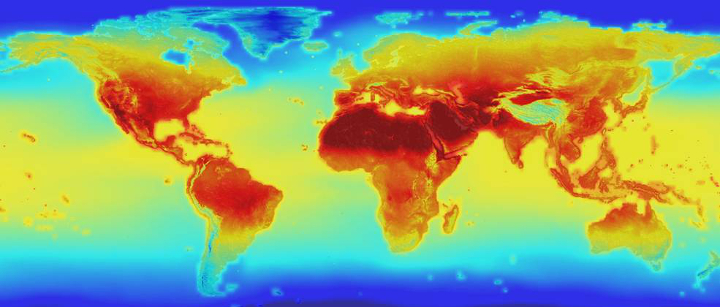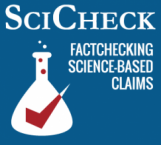
On Earth Day, President Joe Biden touted his administration’s environmental initiatives, but his rhetoric made efforts to reduce methane emissions and drinking water contamination sound more expansive than they actually are.
Global Methane Pledge
In his April 22 remarks, Biden went too far in saying more than 100 countries had agreed to “eliminate methane.” The Global Methane Pledge is to reduce methane emissions, not eliminate them.
Biden: We slashed methane and brought over 100 nations together when I was at the big meeting we had in Europe, hundred nations around the globe. … There’s two things I was able to accomplish. One, I got a pledge, a pledge from a hundred, I think it was 144 of them, that they would eliminate methane. … It’s the most damaging of all the pollutants that are going up.
We asked the White House about Biden’s remarks, and we haven’t received a response to our questions. However, there was a “big meeting” in Europe on climate change — the United Nations Climate Change Conference, or COP26, in Glasgow, Scotland, in early November — at which more than 100 countries agreed to voluntarily reduce methane emissions by “at least 30 percent from 2020 levels by 2030.” The Global Methane Pledge, as it’s called, now has 111 participants.
 The pledge is a global one, not a 30% reduction for each country. If the goal is reached, it “could eliminate over 0.2˚C warming by 2050,” the pledge’s website says.
The pledge is a global one, not a 30% reduction for each country. If the goal is reached, it “could eliminate over 0.2˚C warming by 2050,” the pledge’s website says.
The U.S. and the European Union invited other countries to join the pledge to reduce methane, which Biden said was important “to keep 1.5 degrees within reach,” a reference to the Paris Agreement’s goal of limiting global temperature rise to 1.5 degrees Celsius compared with pre-industrial levels.
Methane, which is emitted from fossil fuel systems, agriculture and landfills, traps heat more efficiently than carbon dioxide, though it also breaks down much more quickly. As we’ve explained, methane breaks down over about 12 years, while carbon dioxide’s lifetime can last thousands of years.
The U.N. says methane is “responsible for a third of current warming from human activities.”
In a May 2021 report, the U.N. Environment Programme and the Climate & Clean Air Coalition said there are “readily available targeted measures” that could reduce methane emissions by 30% globally by 2030, and it said most of those measures were low-cost. With additional efforts, the report said the reduction could be 40% to 45%, a level that was needed to limit global warming to 1.5 degrees Celsius.
Because methane persists in the atmosphere for a relatively short period, reducing those emissions produces near-term effects. “Lower methane concentrations would rapidly reduce the rate of warming, making methane mitigation one of the best ways of limiting warming in this and subsequent decades,” the U.N. report said in its executive summary.
The White House released an action plan in November, calling for new rules for the oil and gas sector, outreach to landfills, and incentives for farmers and ranchers to reduce emissions.
PFAS in Drinking Water
Biden also said that the bipartisan infrastructure law “gives communities the money they need to get forever chemicals, PFAS off, out of the water.” He said these chemicals were “deadly” and “we’re going to get rid of it all.” But it would take more than the one law to eliminate “all” PFAS in drinking water.
PFAS, or per- and polyfluoroalkyl substances, include thousands of chemicals found in many products, including food packaging, waterproof materials, stain-resistant products, some cookware, firefighting foam, and cosmetics, according to the Environmental Working Group.
The Environmental Protection Agency explains that they are “long lasting chemicals,” with components that “break down very slowly over time.” They have been detected in drinking water, as well as the blood of people and animals, soil, and the air. “Scientific studies have shown that exposure to some PFAS in the environment may be linked to harmful health effects in humans and animals,” including cancer and immune-deficiency disorders, the EPA says.
The infrastructure law, enacted in November, includes $10 billion in funding to address PFAS issues in drinking water. The National Law Review said the sum was “significantly more” than the federal government had ever dedicated to this issue, but also that “the funds will likely represent only a fraction of the money needed to address PFAS issues nationwide.”
The Environmental Working Group says that PFAS chemicals have been detected in drinking water systems that provide water for 19 million Americans, as of the group’s tracking in July 2019, but the group also estimates that up to 110 million people could have drinking water contaminated with the chemicals.
The National Law Review says that while the $10 million in funding — most of which will likely cover wastewater plant and residential filtration systems to filter out the chemicals — isn’t enough to completely address the problem across the country, the investment could produce “longer-term effects” that “result in more litigation against PFAS polluters.”
In his remarks, Biden added: “We started replacing 100% — 100% of all the lead pipes … that poison our water in America.” As we’ve written before, the infrastructure law does start this process, but in this case, too, the funding isn’t enough to finish replacing 100% of the lead pipes in the U.S.
FactCheck.org does not accept advertising. We rely on grants and individual donations from people like you. Please consider a donation. Credit card donations may be made through our “Donate” page. If you prefer to give by check, send to: FactCheck.org, Annenberg Public Policy Center, 202 S. 36th St., Philadelphia, PA 19104.
The post Biden’s Earth Day Exaggerations appeared first on FactCheck.org.

